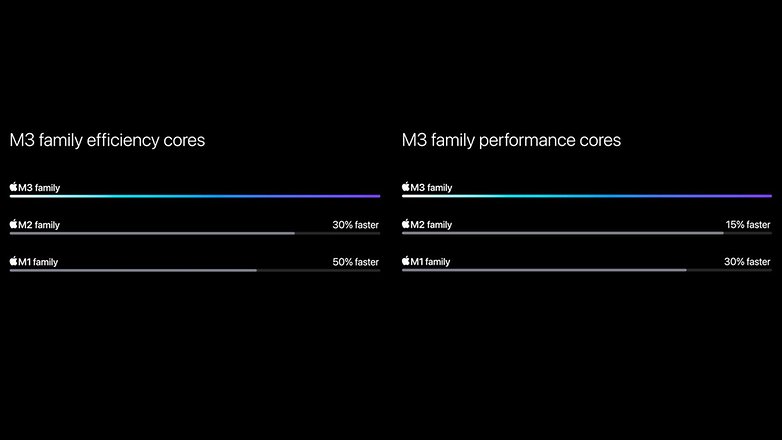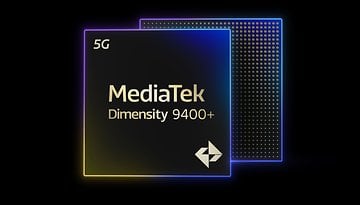MacBook Pro M3 Max Benchmarks: On Par With Full-Sized Mac


Apple launched the M3 chip that powers the new MacBook Pro and iMac with heavy emphasis on the GPU improvements. But apart from the graphics, the M3 is also boasting notably CPU gains, particularly on the M3 Max that is equipped on the higher end MacBook Pro entries. A fresh benchmark reveals how the chip's processor can give the M2 Ultra found on full-sized Mac desktops close competition.
- Don't miss: Apple MacBook Air 15 M2 review
Apple M3 Max's performance vs. M2 Ultra
As seen in the early GeekBench results, a device labeled as Mac15,9, which is believed to be the 16-inch MacBook Pro with M3 Max, impressively scores around 3,000 and 21,000 in single-core and multicore sections. To put in context, the M2 Ultra on the Mac Studio and Mac Pro averages around 2,800/21,500. This means the new M3 Max scores fairly higher in single thread test while almost on par with the M2 Ultra in multi thread.
What's even interesting is that the M3 Max on MacBook Pro 2023 has a lower TDP (thermal design power) at 30 watts, or half of the operating power of the M2 Ultra at 60 watts. More impressively, the M3 Max has only a 16-core CPU layout whereas the M2 Ultra has a 24-core.
Apple M3 Max vs. M2 Ultra average cores in GeekBench
| Model | Single-core | Multicore |
|---|---|---|
| Apple M3 Max on MacBook Pro (30 W) | 3,000 | 21,000 |
| Apple M2 Ultra on Mac Pro / Mac Studio (60 W) | 2,800 | 21,500 |
| Snapdragon X Elite (23 W) | 2,700 | 14,500 |
The benchmark results just show some benefits of the 3 nm fabrication process where the M3 chip is based compared to the 6 nm on the M2 Ultra. However, it is unknown how the chips are going to perform in real-life usage or if there will be a palpable difference for the users.

Apple M3 Max vs. M2 Max vs. M1 Max vs. Snapdragon X Elite
When putting the M3 Max against other Apple chipsets, the CPU on the new chip is said to be 80 percent faster than the M1 Max and about 50 percent over the M2 Max. At the same time, the 16-core GPU on the M3 Max is listed to be 50 percent better compared to the M1 Max's GPU. Apple also markets the significantly higher power efficiency the M3 chips bring.
Against a non-Apple chipset, the Apple M3 Max easily trumps the Qualcomm Snapdragon X Elite with Oryon cores by a big margin, at least in one category. The Snapdragon X Elite with 23 watts TDP is averaging 14,000 points in multicore test and around 2,700 in single core, making this chip more comparable to the M2 Max.
Apple's MacBook Pro M3 in 14-inch and 16-inch sizes are already available for pre-order from major retailers before hitting shelves on November 7th. Specifically, the 16-inch model with the M3 Max is priced at $2499.
Does the M3 chip convince you to buy any of the new MacBook Pro? What do you think of the new M3 Max with this performance?
Via: MacRumrors Source: Geekbench



















